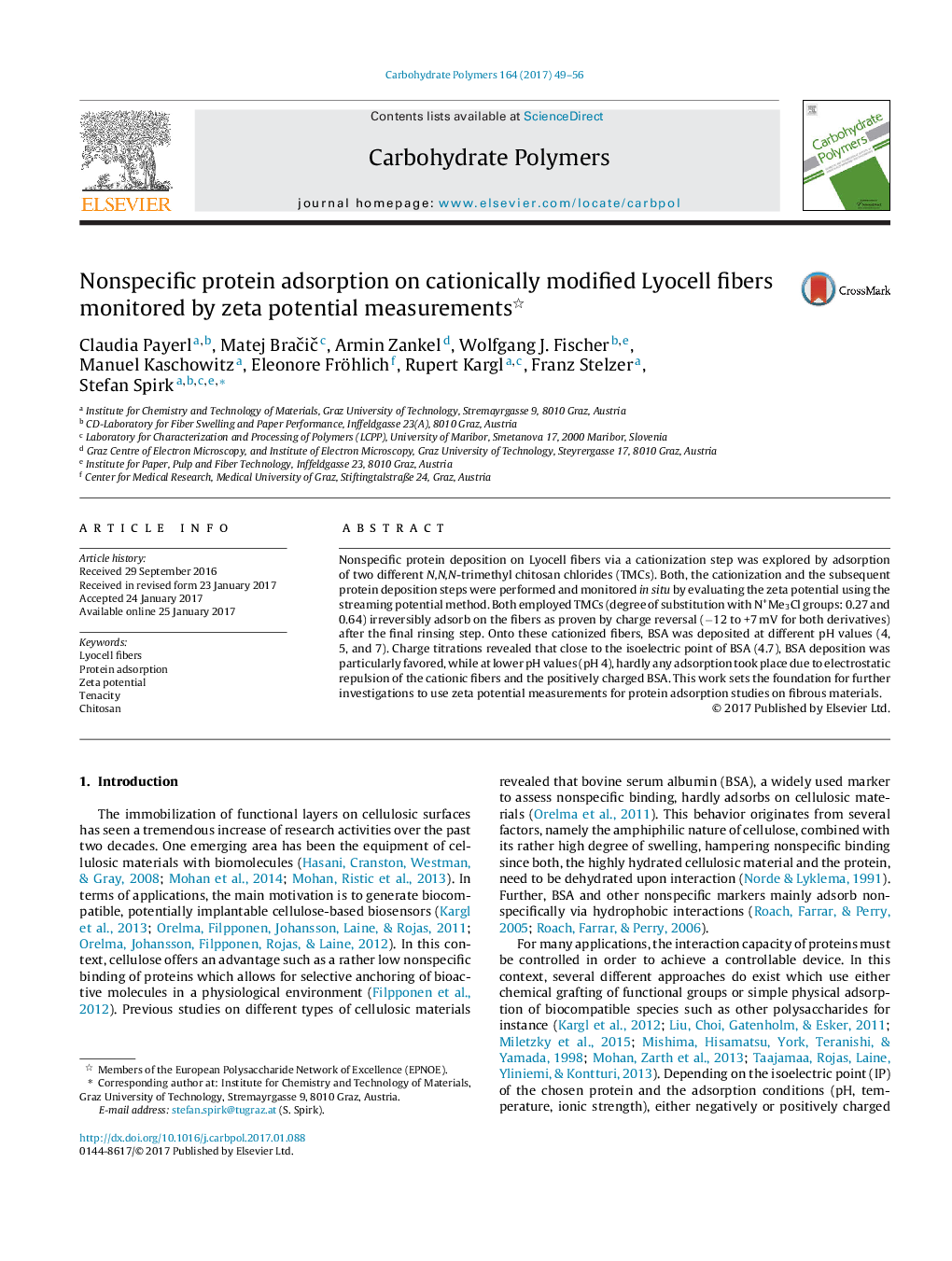| Article ID | Journal | Published Year | Pages | File Type |
|---|---|---|---|---|
| 5157524 | Carbohydrate Polymers | 2017 | 8 Pages |
Abstract
Nonspecific protein deposition on Lyocell fibers via a cationization step was explored by adsorption of two different N,N,N-trimethyl chitosan chlorides (TMCs). Both, the cationization and the subsequent protein deposition steps were performed and monitored in situ by evaluating the zeta potential using the streaming potential method. Both employed TMCs (degree of substitution with N+Me3Cl groups: 0.27 and 0.64) irreversibly adsorb on the fibers as proven by charge reversal (â12 to +7Â mV for both derivatives) after the final rinsing step. Onto these cationized fibers, BSA was deposited at different pH values (4, 5, and 7). Charge titrations revealed that close to the isoelectric point of BSA (4.7), BSA deposition was particularly favored, while at lower pH values (pH 4), hardly any adsorption took place due to electrostatic repulsion of the cationic fibers and the positively charged BSA. This work sets the foundation for further investigations to use zeta potential measurements for protein adsorption studies on fibrous materials.
Related Topics
Physical Sciences and Engineering
Chemistry
Organic Chemistry
Authors
Claudia Payerl, Matej BraÄiÄ, Armin Zankel, Wolfgang J. Fischer, Manuel Kaschowitz, Eleonore Fröhlich, Rupert Kargl, Franz Stelzer, Stefan Spirk,
